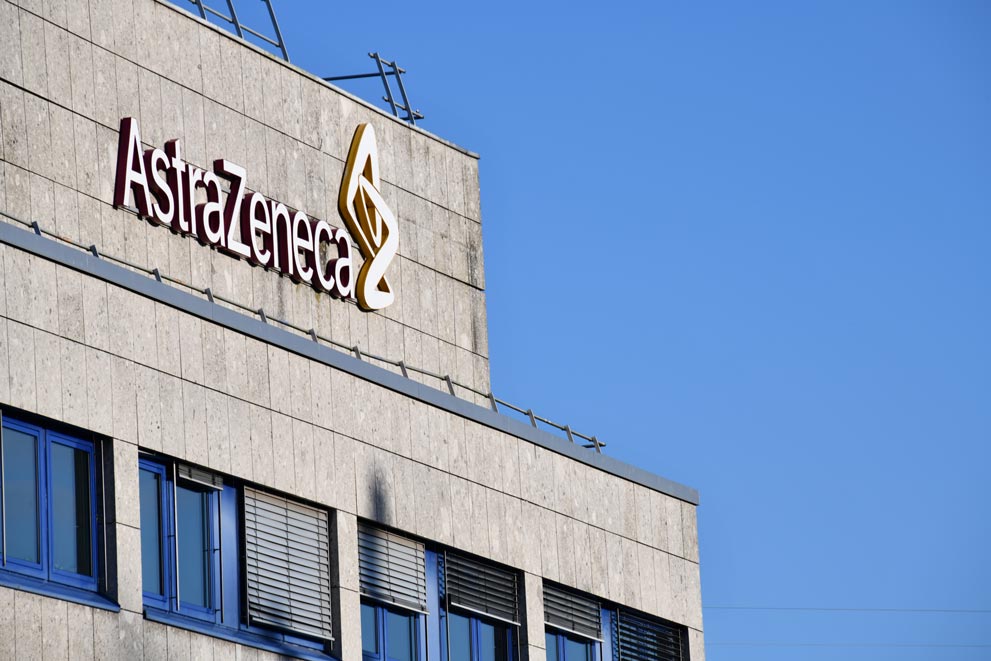Advertisment
Tagrisso (osimertinib) reduced the risk of disease progression or death by 84% in patients with unresectable, Stage III EGFR-mutated lung cancer vs. placebo in LAURA Phase III trial – AstraZeneca

Positive results from the LAURA Phase III trial showed AstraZeneca’s Tagrisso (osimertinib) demonstrated a statistically significant and highly clinically meaningful improvement in progression-free survival (PFS) for patients with unresectable, Stage III epidermal growth factor receptor-mutated (EGFRm) non-small cell lung cancer (NSCLC) whose tumours have exon 19 deletions or exon 21 (L858R) mutations, after chemoradiotherapy (CRT) compared to placebo after CRT.
These results were presented during the Plenary Session at the2 4 American Society of Clinical Oncology (ASCO) Annual Meeting (abstract #LBA4) and simultaneously published in The New England Journal of Medicine.
Results showed Tagrisso reduced the risk of disease progression or death by 84% compared to placebo (hazard ratio [HR]> 0.16; 95% confidence interval [CI] 0.10-0.24; p<0.001) as assessed by blinded independent central review (BICR). Median PFS was 39.1 months in patients treated with Tagrisso versus 5.6 months for placebo. Importantly, a clinically meaningful PFS benefit was observed across all prespecified subgroups including sex, race, type of EGFR mutation, age, smoking history, and prior CRT.
Overall survival (OS) data showed a favourable trend for Tagrisso, although data were not mature at the time of this analysis. The trial will continue to assess OS as a secondary endpoint.
Suresh Ramalingam, MD, Executive Director of Winship Cancer Institute of Emory University, Atlanta, US and principal investigator in the trial, said: “The impressive progression-free survival results from the LAURA Phase III trial represent a major breakthrough for patients with Stage III EGFR-mutated lung cancer for whom no targeted treatments are available. Osimertinib delayed the risk of disease progression or death by an unprecedented 84% and should become the new standard of care for patients in this setting based on these data.”
Susan Galbraith, Executive Vice President, Oncology R&D, AstraZeneca, said: “Tagrisso extended progression-free survival by more than three years in this potentially curative setting, reinforcing the need to test and diagnose patients early. These practice-changing data cement the powerful impact Tagrisso can make as backbone therapy in EGFR-mutated lung cancer, especially in the lives of these patients who have historically experienced early progression following chemoradiotherapy.
Safety results and discontinuation rates due to adverse events (AEs) were as expected and no new safety concerns were identified.
Tagrisso is approved as monotherapy in more than 100 countries including in the US, EU, China and Japan. Approved indications include for 1st-line treatment of patients with locally advanced or metastatic EGFRm NSCLC, locally advanced or metastatic EGFR T790M mutation-positive NSCLC, and adjuvant treatment of early-stage EGFRm NSCLC. Tagrisso with the addition of chemotherapy is also approved in the US and several other countries for 1st-line treatment of patients with locally advanced or metastatic EGFRm NSCLC.higher AEs from all causes occurred in 35% of patients in the Tagrisso arm versus 12% in the placebo arm.
See -” Osimertinib after Chemoradiotherapy in Stage III EGF-Mutated NSCLC”: Authors: Shun Lu, M.D., Terufumi Kato, M.D., Xiaorong Dong, M.D., Ph.D., Myung-Ju Ahn, M.D., Le-Van Quang, M.D., Nopadol Soparattanapaisarn, M.D., Takako Inoue, M.D., +17, for the LAURA Trial Investigators*Author Info & Affiliations
Published June 2, 2024 DOI: 10.1056/NEJMoa240261.





